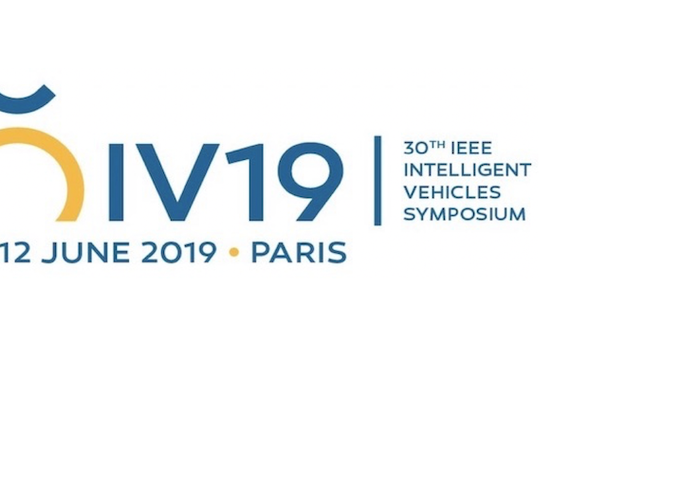What are the new frontiers of autonomous driving: Are there open technical or non-technical issues that impede autonomous driving now or in the upcoming future? Can cognitive inspiration and machine learning (ML) help us here or do these approaches lead to new problems?
The workshop is structured in two sessions to focus on two major aspects of these questions. The first session will identify major challenges across all aspects of autonomous driving (algorithmic, societal, etc.) that are supposed to or that could probably impede the development of autonomous driving (AD) or its introduction on the market. These could be technical issues (how many test miles need to be driven? is ML reliable? how to select training data?). But these could also be non-technical questions like law-, insurance-related, or ethical questions. Therefore, two different keynotes will be given: one OEM (Mercedes-Benz USA) and one legal scientist (Leibniz University, Germany).
In the second session, cognitively-inspired and ML-based solutions will be presented. Here, we will focus on two approaches: pure ML, and bio-inspired approaches that try to mimic cognitive mechanisms observed in humans and/or animals in a reasonable amount of detail. Each approach has their own particular advantages and limitations. For example pure ML often requires large amounts of training data, yet is typically very brittle while bio-inspired approaches are by necessity based on incomplete theories, and we’re still missing convincing demonstrations in real applications.
Presentations
Workshop format: full day.
Workshop program (several changes on grounds of ill health):
09:30 Coffee and registration
09:45-10:00 Welcome talk: “Adversarial Attacks, Missing Acceptance + ???: Challenges for AD?” (Tim Tiedemann, HAW Hamburg)
10:00-10:50 Keynote (Christoph Schroeder, Luminar Tech, previously Mercedes Benz Autonomous Driving, USA)
10:50-11:00 Coffee break (short)
11:00-11:30 “Radar AI and the Challenges of AD” (Jonathan Wache, Continental, Germany)
11:30-12:00 “Qualification Challenges for Machine Learning Algorithms in Autonomous Driving Applications” (Julia Nitsch, Ibeo, Germany)
12:00-12:30 Discussion
12:30-13:30 Lunch break and posters
13:30-14:00 “Estimating Labeling Quality with Deep Object Detectors” (Christian Haase-Schütz, Bosch/KIT, Germany)
14:00-14:30 “State of the art and legal open issues related to autonomous driving” (Maria Cristina Gaeta, Suor Orsola Benincasa University of Naples, Italy)
14:30-15:00 “Learning to Co-Drive. Brain Architectures and Mental Imagery Mechanisms that Help Improving Agents for Autonomous Driving and Enable Natural Human-Robot Interactions” (Mauro Da Lio, University of Trento, Italy)
15:00-15:30 Coffee break and posters
15:30-16:00 “Mental Imagery for Intelligent Vehicles” (Alice Plebe, University of Trento, Italy)
16:00-16:30 “Testing agents and controlling vehicles from simulation to real applications” (Riccardo Dona, University of Trento, Italy)
16:30-17:00 Final discussion
The program flyer can be found here.
Keynotes
The workshop will feature two keynotes from prominent representatives from academia and industry:
-
Dr. Christoph Schroeder, Vice President Autonomous Driving N.A., Mercedes-Benz R+D N.A., will talk about the challenges on the way to automated driving. In this talk he will give some updates on the current status of the technology (with some videos) as well as technical, societal and legal challenges going ahead. Another focus topic is verification and validation of automated driving functions including the development process that is applied at Mercedes-Benz.
-
(cancelled)
Presenters
There will be a mixture of invited talks, regular paper presentations, and discussion rounds. Details can be found in the program.
Poster Session
A poster session will be presented. Details of the posters can be found in the program.
Chairs
-
Tim Tiedemann: Affiliation: Department of Computer Science, Faculty TI, University of Applied Sciences Hamburg Email address: Tim.Tiedemann@haw-hamburg.de
-
Serge Thill: Affiliation: Interaction Lab, School of Informatics, University of Skövde, Sweden and Donders Institute for Brain, Cognition, and Behaviour, Radboud University, The Netherlands
-
Sean Anderson: Affiliation: Department of Automatic Control and Systems Engineering, University of Sheffield
Acknowledgement
This workshop is supported by the European H2020 project Dreams4Cars, grant agreement number 731593.
